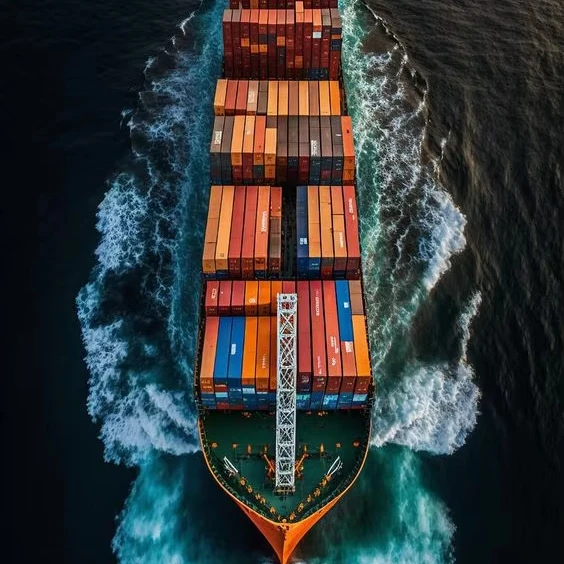Sigurnost prijevoza tereta obuhvaća sveobuhvatan skup mjera osmišljenih za osiguranje sigurnog i zaštićenog prijenosa dobara s jednog mjesta na drugo. To je ključno za minimiziranje rizika od oštećenja, krađe i gubitka tijekom prijevoza. Ove sigurnosne mjere uključuju korištenje odgovarajuće ambalaže za zaštitu dobara od lomljenja, kvarenja ili kontaminacije. Dodatno, postupci rukovanja i održavanje povoljnih uvjeta prijevoza, kao što je kontrola temperature, od vitalne su važnosti za očuvanje integriteta tereta tijekom njegovog putovanja.
Uloga sigurnosti prijevoza tereta proteže se izvan samo očuvanja dobara; ona je vitalna za održavanje integriteta opskrbnog lanca. Sprječavanjem potencijalnih financijskih gubitaka od oštećenog ili izgubljenog tereta, tvrtke mogu održati svoju ekonomsku stabilnost. Što je još važnije, osiguranje sigurne prijevoza tereta pomaže u očuvanju povjerenja kupaca, jer pravovremene i netaknute isporuke odražavaju pouzdanost tvrtke. Stoga, davanje prioriteta sigurnosti u prijevozu tereta značajno doprinosi neometanom radu opskrbnog lanca, financijskoj dobrobiti i održavanju povjerenja kupaca.
Pridržavanje standarda pakiranja ključno je za sigurnost prijevoza tereta kako bi se smanjili rizici od oštećenja tijekom transporta. Korištenje izdržljivih materijala i pravilno označavanje igra značajnu ulogu. Na primjer, statistika otkriva da oko 30% oštećenja tijekom otpreme proizlazi iz neučinkovitog pakiranja, naglašavajući potrebu za praksama koje su standardne u industriji. Korištenje materijala s jastučićima i ispravnog označavanja ne samo da štiti teret, već i pojednostavljuje rukovanje logistikom.
Provedba učinkovite planiranja ruta još je jedna integralna praksa koja optimizira vrijeme isporuke dok poboljšava sigurnost izbjegavanjem visokorizičnih područja. Softver za optimizaciju ruta i podaci o prometu u stvarnom vremenu vrijedni su alati u ovom procesu. Planiranjem ruta strateški, tvrtke mogu smanjiti rizike od nesreća i osigurati pravovremene isporuke, na kraju štiteći i teret i osoblje za prijevoz.
Korištenje tehnologije, poput GPS sustava za praćenje i praćenja u stvarnom vremenu, značajno poboljšava sigurnost tereta i odgovornost tijekom transporta. Tehnologije poput ovih su pokazale smanjenje stopa gubitka; studije slučaja ističu smanjenje do 20% u gubicima tereta kada su sustavi praćenja na snazi. Ovi alati ne samo da pružaju mir za pošiljatelje, već također osiguravaju veću pouzdanost i transparentnost u logističkom lancu.
Jedan od glavnih izazova u prekograničnom prijevozu tereta je snalaženje u regulatornim i usklađenim pitanjima.
Kulturne i jezične barijere također predstavljaju značajan izazov u prekograničnom prijevozu.
Osim toga, upravljanje rizicima i sigurnosne brige ostaju hitni izazovi, posebno u politički nestabilnim regijama.
Komunikacija i obuka su od vitalnog značaja za vozače u poticanju kulture sigurnosti unutar transporta tereta.
Poštivanje sigurnosnih protokola značajno smanjuje rizik od incidenata s teretom. Redovite inspekcije vozila i usklađenost s zakonima o prijevozu igraju ključnu ulogu u ovom procesu. Na primjer, izvođenje inspekcija prije putovanja pomaže u identificiranju potencijalnih mehaničkih problema, smanjujući kvarove i osiguravajući sigurne uvjete putovanja. Slijedeći ove protokole, vozači doprinose očuvanju integriteta tereta i zaštiti svih uključenih u proces prijevoza.
Inovacije u tehnologiji značajno poboljšavaju sigurnost prijevoza tereta.
Tehnologija blockchaina revolucionira transparentnost tereta promicanjem povjerenja i odgovornosti u opskrbnom lancu. Stvaranjem nepromjenjivog digitalnog registra, blockchain osigurava da je svaka transakcija i promjena u putu tereta zabilježena transparentno. Ova tehnologija drastično smanjuje slučajeve prijevare i manipulacije. Istraživanja pokazuju da je uvođenje blockchain rješenja dovelo do značajnog smanjenja incidenata prijevara povezanih s teretom, jer omogućuje dionicima da provjere autentičnost svake transakcije, čime se potiče sigurno trgovinsko okruženje.
Kako bi se osigurali sigurni prijenosi tereta, Pin Duo Duo agent za nabavu nudi sveobuhvatan paket usluga. To uključuje FBA Amazon otpremu, carinsko posredovanje i dostavu od vrata do vrata, između ostalog. Višenamjenske mogućnosti agenta i opsežna globalna pokrivenost čine ga preferiranim izborom za mnoge tvrtke. Iskustva korisnika često ističu brzu dostavu agenta, konkurentne cijene i profesionalnu korisničku uslugu. Ove značajke značajno doprinose osiguravanju sigurnosti i pouzdanosti transporta tereta.
The Pomorski teret dostava od vrata do vrata ekspresni otpremni agent pruža značajne prednosti za one koji traže pouzdana rješenja za transport tereta. S fokusom na osiguranje sigurnosti tereta i pravovremenih isporuka, ova usluga se ističe u međunarodnoj logistici. Nudeći sveobuhvatno skladištenje, carinjenje i osiguranje pošiljaka, ovaj agent osigurava da se roba rukuje s najvećom pažnjom. Klijenti hvale njihovu sposobnost da pruže prilagođena rješenja prilagođena raznim potrebama za otpremu, povećavajući povjerenje i zadovoljstvo uslugom.


